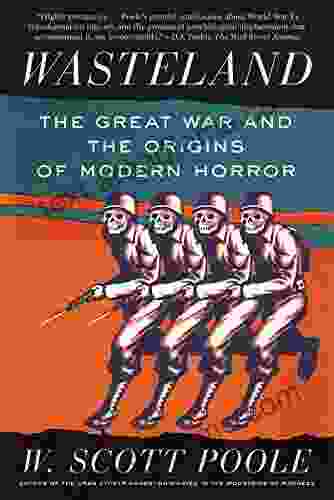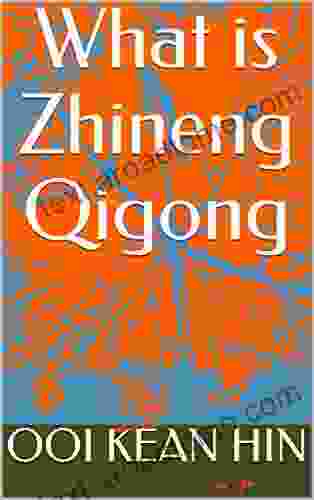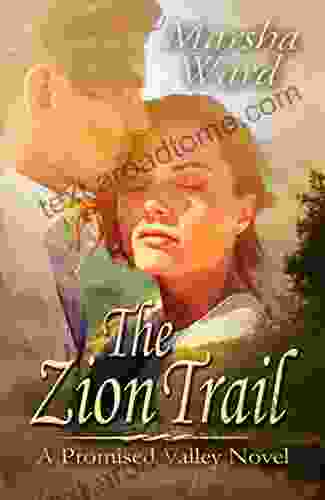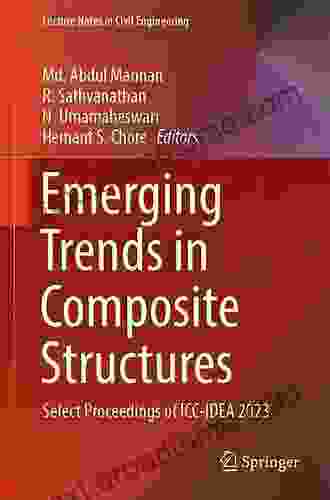The Great War and the Origins of Modern Horror

The Great War, also known as World War I, was a watershed moment in human history. It was the first industrialized war, and it resulted in the deaths of millions of people. The war also had a profound impact on the development of the horror genre.
4.1 out of 5
| Language | : | English |
| File size | : | 1679 KB |
| Text-to-Speech | : | Enabled |
| Screen Reader | : | Supported |
| Enhanced typesetting | : | Enabled |
| X-Ray | : | Enabled |
| Word Wise | : | Enabled |
| Print length | : | 339 pages |
Before the war, horror was often associated with the supernatural. Stories of ghosts, demons, and vampires were common. However, the Great War introduced a new kind of horror: the horror of reality. The war's trenches were a nightmare of mud, rats, and death. Soldiers were constantly exposed to the horrors of war, and many of them were traumatized by their experiences.
The Great War also led to the development of new technologies that would be used in horror films and literature. These technologies included the machine gun, the tank, and the airplane. These weapons were capable of causing mass destruction, and they made the war even more terrifying.
The Great War had a profound impact on the development of the horror genre. The war introduced a new kind of horror: the horror of reality. The war also led to the development of new technologies that would be used in horror films and literature. These factors combined to create a new era of horror that continues to this day.
The Impact of the Great War on Horror Literature
The Great War had a profound impact on horror literature. Before the war, horror stories were often set in the past or in exotic locations. However, after the war, horror stories began to be set in the present day and in familiar settings. This made the stories more relatable and more terrifying.
The war also led to the development of new themes in horror literature. Before the war, horror stories were often about the supernatural. However, after the war, horror stories began to explore the darker side of human nature. Stories of madness, violence, and death became more common.
Some of the most famous horror writers of the 20th century were influenced by the Great War. H.P. Lovecraft, Edgar Allan Poe, and Bram Stoker all wrote stories that explored the horrors of war. These stories helped to shape the development of the horror genre.
The Impact of the Great War on Horror Films
The Great War also had a profound impact on horror films. Before the war, horror films were often silent and black-and-white. However, after the war, horror films began to use sound and color. This made the films more realistic and more terrifying.
The war also led to the development of new genres of horror films. The war film and the monster movie both emerged in the 1920s. These genres explored the horrors of war and the fear of the unknown.
Some of the most famous horror films of the 20th century were made in the wake of the Great War. These films include "Nosferatu" (1922),"Dracula" (1931),and "The Thing from Another World" (1951). These films helped to shape the development of the horror genre.
The Legacy of the Great War
The Great War had a profound impact on the development of the horror genre. The war introduced a new kind of horror: the horror of reality. The war also led to the development of new technologies and themes that would be used in horror films and literature. These factors combined to create a new era of horror that continues to this day.
The legacy of the Great War can be seen in the horror films and literature that are produced today. Many of the most popular horror films and books explore the horrors of war and the darker side of human nature. These stories help to remind us of the horrors that war can bring and the importance of peace.
4.1 out of 5
| Language | : | English |
| File size | : | 1679 KB |
| Text-to-Speech | : | Enabled |
| Screen Reader | : | Supported |
| Enhanced typesetting | : | Enabled |
| X-Ray | : | Enabled |
| Word Wise | : | Enabled |
| Print length | : | 339 pages |
Do you want to contribute by writing guest posts on this blog?
Please contact us and send us a resume of previous articles that you have written.
 Book
Book Novel
Novel Page
Page Chapter
Chapter Text
Text Story
Story Genre
Genre Reader
Reader Library
Library Paperback
Paperback E-book
E-book Magazine
Magazine Newspaper
Newspaper Paragraph
Paragraph Sentence
Sentence Bookmark
Bookmark Shelf
Shelf Glossary
Glossary Bibliography
Bibliography Foreword
Foreword Preface
Preface Synopsis
Synopsis Annotation
Annotation Footnote
Footnote Manuscript
Manuscript Scroll
Scroll Codex
Codex Tome
Tome Bestseller
Bestseller Classics
Classics Library card
Library card Narrative
Narrative Biography
Biography Autobiography
Autobiography Memoir
Memoir Reference
Reference Encyclopedia
Encyclopedia Marion Jaide
Marion Jaide Tilly Dillehay
Tilly Dillehay Marco Maria Maiocchi
Marco Maria Maiocchi Mark S Ferrara
Mark S Ferrara Mary H Rubin
Mary H Rubin Patty Tucker
Patty Tucker Stephen I Goldman D O
Stephen I Goldman D O Shawn Achor
Shawn Achor Marc Kirschenbaum
Marc Kirschenbaum Tony H Latham
Tony H Latham Srikanth Kondapalli
Srikanth Kondapalli Victor Regnier
Victor Regnier Steve The Noob
Steve The Noob Thomas A Schwandt
Thomas A Schwandt Ophelia Field
Ophelia Field Martin Leichtman
Martin Leichtman Marvin Marshall
Marvin Marshall Mary Hosmar
Mary Hosmar Margaret Levine Young
Margaret Levine Young Melinda K Trotter
Melinda K Trotter
Light bulbAdvertise smarter! Our strategic ad space ensures maximum exposure. Reserve your spot today!
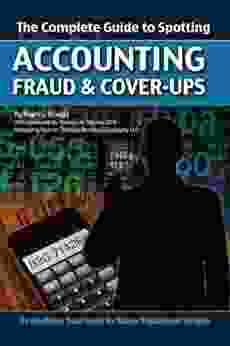
 Milton BellThe Complete Guide To Spotting Accounting Fraud Cover Ups: Uncover Deception...
Milton BellThe Complete Guide To Spotting Accounting Fraud Cover Ups: Uncover Deception...
 Branden SimmonsAn Athlete Tell All Guide On How To Homeschool Crush Your Competition And Win...
Branden SimmonsAn Athlete Tell All Guide On How To Homeschool Crush Your Competition And Win...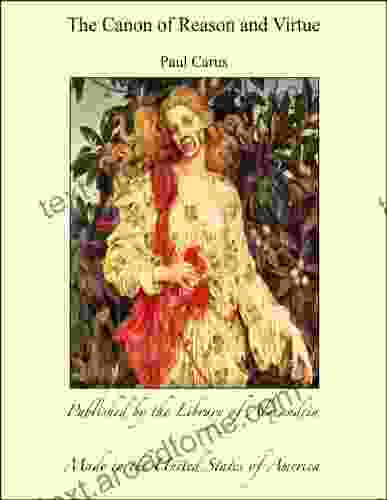
 Michael SimmonsUnveiling the Canon of Reason and Virtue: A Journey into Rationality and...
Michael SimmonsUnveiling the Canon of Reason and Virtue: A Journey into Rationality and... Gerald ParkerFollow ·8.7k
Gerald ParkerFollow ·8.7k Vincent MitchellFollow ·11k
Vincent MitchellFollow ·11k Corey GreenFollow ·16k
Corey GreenFollow ·16k Jorge AmadoFollow ·9.5k
Jorge AmadoFollow ·9.5k Jackson BlairFollow ·12.8k
Jackson BlairFollow ·12.8k Joel MitchellFollow ·9.3k
Joel MitchellFollow ·9.3k Charles DickensFollow ·8.5k
Charles DickensFollow ·8.5k Tyrone PowellFollow ·9k
Tyrone PowellFollow ·9k

 Ralph Ellison
Ralph EllisonIntelligent Video Surveillance Systems: The Ultimate...
In a world...
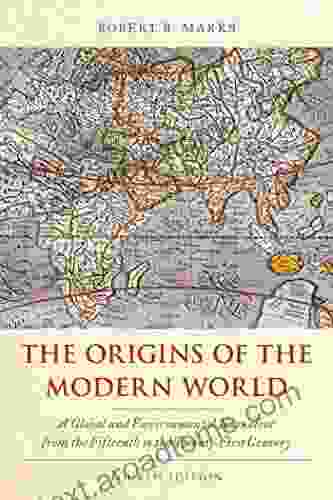
 Jeffrey Cox
Jeffrey CoxThe Origins of the Modern World: A Journey to the Roots...
Embark on an Extraordinary...

 Paulo Coelho
Paulo CoelhoUnlock the Power of Integrated Medical Imaging with...
In the rapidly evolving...
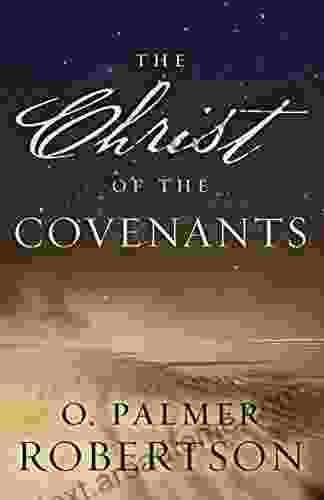
 Charles Reed
Charles ReedThe Christ of the Covenants: Unlocking the Mystery of...
Embark on a Profound...
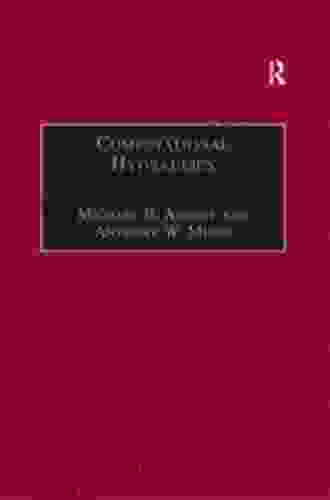
 Elton Hayes
Elton HayesComputational Hydraulics: A Comprehensive Guide for...
In the realm of fluid dynamics,...
4.1 out of 5
| Language | : | English |
| File size | : | 1679 KB |
| Text-to-Speech | : | Enabled |
| Screen Reader | : | Supported |
| Enhanced typesetting | : | Enabled |
| X-Ray | : | Enabled |
| Word Wise | : | Enabled |
| Print length | : | 339 pages |


